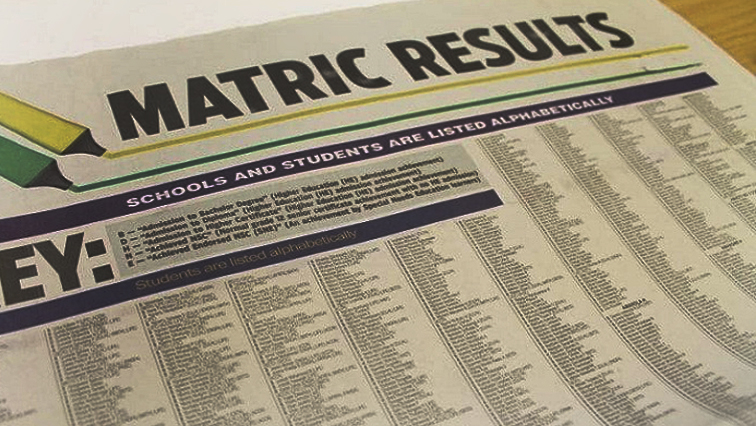Limpopo Education MEC Polly Boshielo says the matric class of 2021 has suffered the consequences of the COVID-19 pandemic, which led to poor matric results.
Limpopo is the worst performing province in the 2021 academic year, compared to other provinces. The province is sitting at 66,7%, a decline of 1.5% from the previous year.
Releasing the provincial matric results in Polokwane on Friday, Boshielo says pre-existing learning deficits, that may have existed prior to the outbreak of the pandemic in 2020 also had an impact on learning and teaching.
Limpopo scores lowest matric pass rate:
‘Double blow’
Limpopo Education MEC Polly Boshielo says the group of 2022 suffered a double blow and had to deal with the harsh reality of COVID-19 for two consecutive academic years. She says classroom time for these learners was drastically reduced from the time they were in grade eleven.
Boshielo says the COVID-19 pandemic and rotational learning negatively affected the matric 2021 results in Limpopo.
“Due to the reduced teaching and learning time, the 2021 cohort was exposed to trimmed and adjusted annual teaching plans that excluded content covered by previous Grade 11 cohorts. The knowledge gap brought into Grade 12 by Grade 11 learners cannot be overlooked. Furthermore, this group was not exposed to formal, full-scale examinations in Grade 11 as previous cohorts, as well as in June common examinations of Grade 12, and therefore did not have the same examinations fitness that prior candidates had.”
Boshielo says although Limpopo recorded the lowest pass rate in the 2021 matric examination results, the class of 2021 produced quality results compared to their predecessors in 2020.
She also says that the pupils performed much better compared to the class of 2017 when there was no COVID-19.
“While we remain concerned about the decline in the 2021 provincial pass rate, our candidates have given a good account of themselves in terms of bachelor and diploma passes as compared to the Class of 2020. We must point out that out of the 105 101 candidates who sat for the 2021 NSC examination, 28 075 achieved bachelor passes compared to the 22 907 bachelor passes achieved by the Class of 2020.”
‘No schools with zero percent pass rate’
Meanwhile, the province produced seven schools with a zero percent pass rate in 2020. Boshielo says the situation is different this time around as there are no schools that got zero percent pass rate in the province in 2021.
“Zero percent schools have been a constant feature of our NSC results in the past 4 to 5 years. It is important to indicate that we do not have a zero percent public school in 2021 as compared to 2020 where there were seven such schools.”
She says Limpopo is facing challenges of social ills such as bullying, alcohol and drug abuse, learner pregnancy, learner ill-discipline and disruption of lessons. Boshielo says the department will report teenage pregnancies to the police.
“According to the Limpopo Department of Health, for the financial year April 2020 to March 2021, their health facilities recorded 22 405 teenage pregnancies with 19 405 deliveries and 3 000 terminations of pregnancy. This should be a concern to all of us as a society. On our part as the Department of Education, we have taken a decision to report pregnancy of learners under the age of 16 to the Police, as it is against the law for anyone to sleep with under-age children.”
Limpopo top-performing learners have encouraged the class of 2022 to remain resilient and work hard to produce better results. Dichochi Ramotlou from Hoerskool Noorderland in Polokwane has obtained the first position in the province, followed by a tie between Sibongile Faith Sithole from Harry Oppenheimer Secondary and Delicia Davhana from Thohoyandou Secondary, who both obtained the second position.
One says, “To the class of 2022, I always say that there are many excuses to give, but you should not let any one of them hamper you from being the greatest version of yourself. So I’m going to pursue medicine.”
“I’m really excited to be part of the top learners here. I will tell them that they should work hard, but hard work is not good enough. If one is not consistent. One needs to manage their time and prioritise their work,” advises another learner.
The top achievers have also thanked everyone who contributed to their studies.
Mbilwi obtains a 76% pass rate
Meanwhile, some learners in the matric class of 2021 at the Mbilwi Secondary School in the Vhembe District in Limpopo have blamed the COVID-19 pandemic for the decline in the province’s pass rate.
Mbilwi obtained a 76% pass rate which is a decline of about 9% compared to the class of 2020.
It is also the only province not to reach the 70% pass mark threshold.
Over the years, Mbilwi Secondary School usually contributes top achieving learners who are recognised nationally. This year, however, not a single one made it to the list.
470 learners wrote the national senior certificate exam at the school and 109 of them failed. Learners say the rotational timetable did not help.
“Corona has a lot to do with this thing in schools we are trying to study and most of the time while we studying we can’t go to school like full hours.”
Some parents share similar sentiments.
One parent explains, “COVID-19 actually made it possible for some of the students not to perform excellently when you are in crises you need to have a way to adapt. I think there could be other factors within teachers or maybe students.”
“We don’t have enough resources we don’t have enough classrooms and it courses learners to attend half of the day whereas other learners have the advantage of attending the whole day. I think that it is the main cause for bad performance,” laments another.
Six of Limpopo’s districts are part of the top 10 worst-performing districts in the country.
Education MEC Polly Boshielo has attributed the decline to challenges that include the inaccessibility to e-learning in many parts of the rural province.
Challenges facing educators during academic year: Mugwena Maluleke






